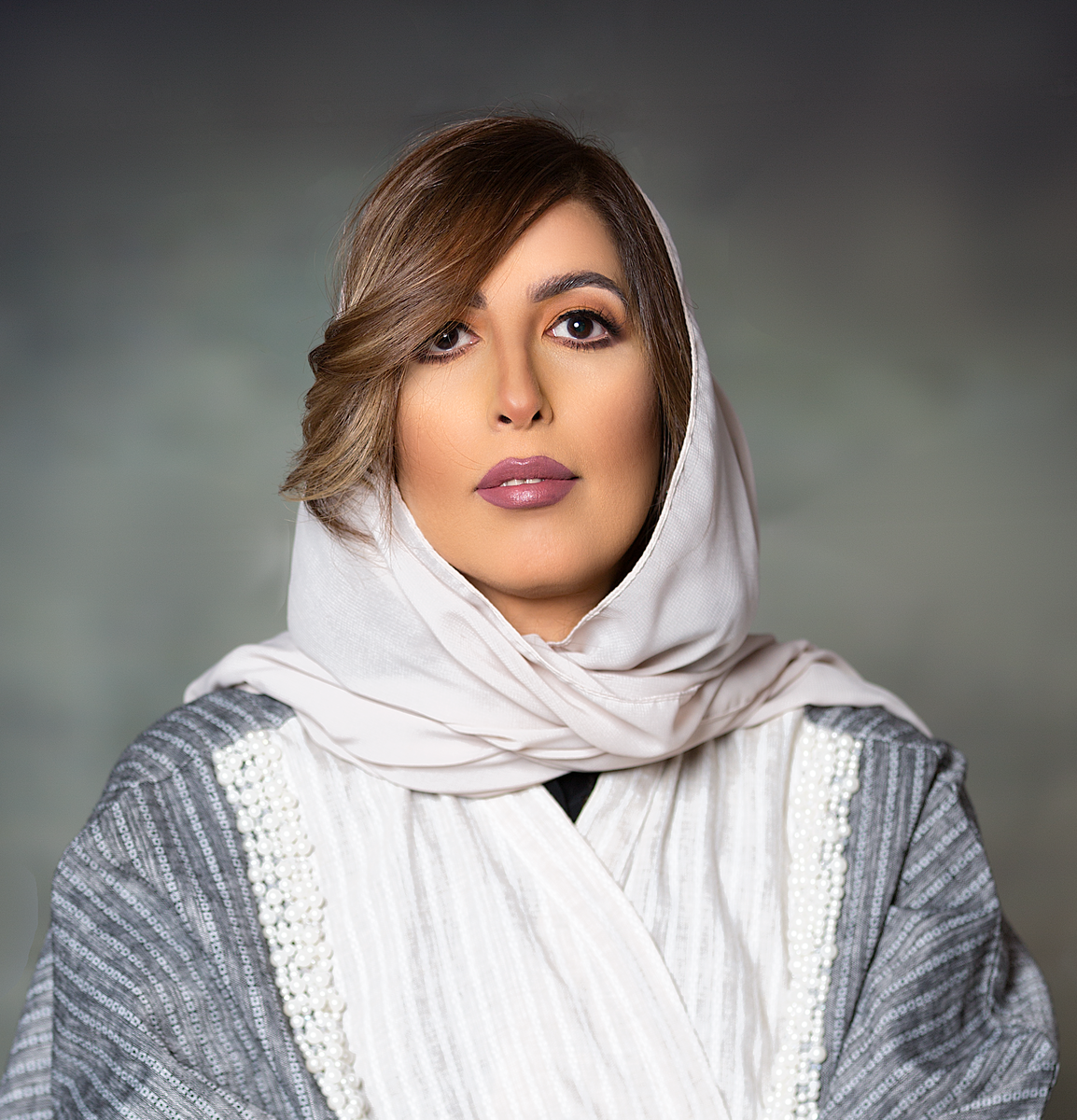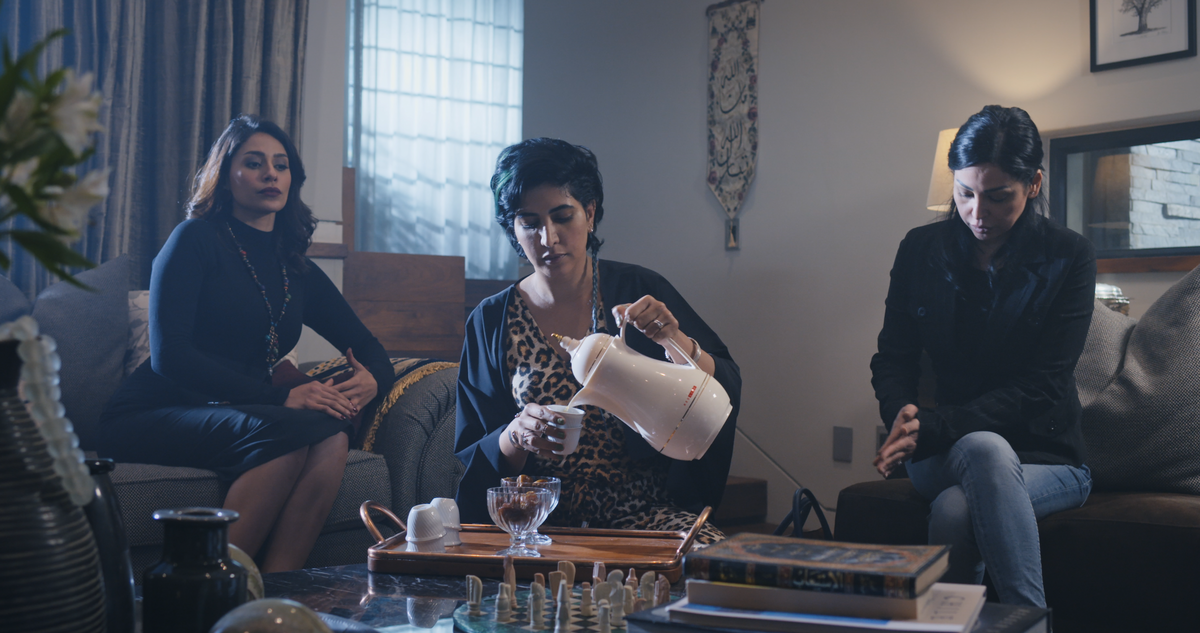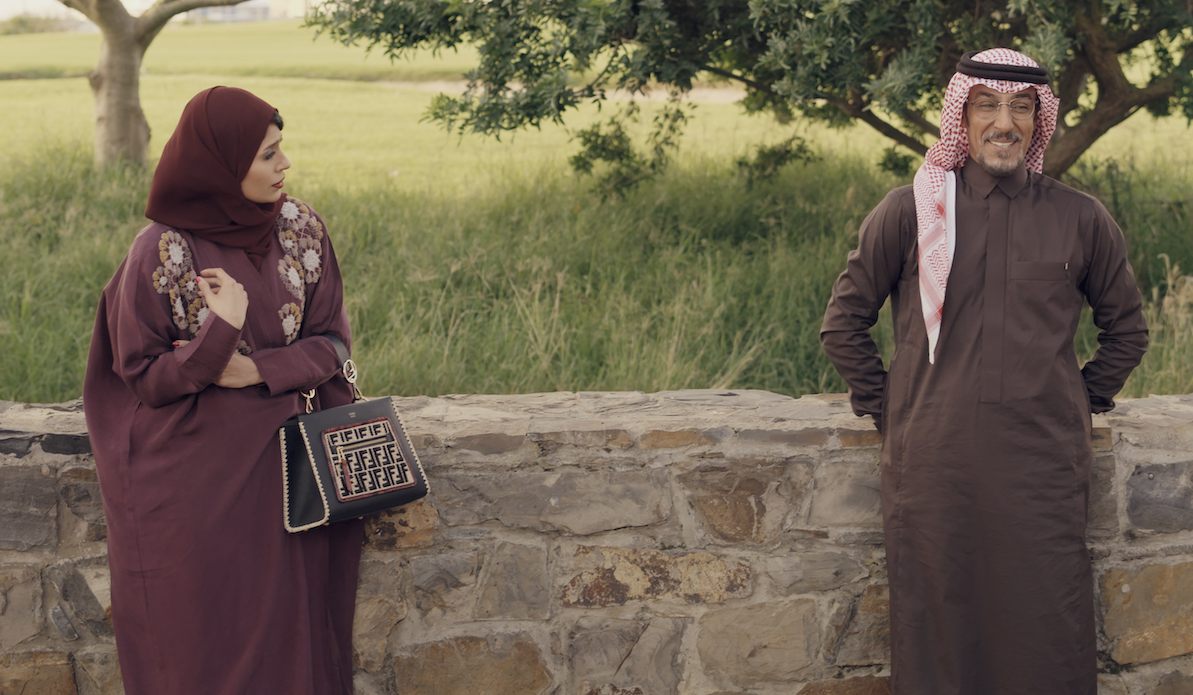DUBAI: There are two ways to fight stereotypes in film and TV — you can either make your series directly about relevant issues, or you can focus on giving viewers a thrilling story, subtly populated with a world and characters that just so happen to buck conventional expectations. “Whispers,” the first Saudi Arabian Netflix original series, takes the latter approach.
Written and directed by Saudi Arabian filmmaker Hana Alomair, “Whispers” is an eight-part psychological thriller about a family torn apart when its patriarch, Hassan, dies in an accident just before the launch of his company’s much anticipated new app — and by the secrets that begin to unfold once he’s gone. Primarily focused on women, each episode follows a different family member or friend, following their perspective of events before and after Hassan’s death.

The show is written and directed by Saudi Arabian filmmaker Hana Alomair. (Supplied)
While the show never calls attention to it, Almoair ensured that “Whispers” would depict Saudi women as they are rarely seen, not populating the background as wives and mothers but fully centered, three-dimensional and flawed human beings.
“It was important for me when I started working on this project — this (portrayal) of women how they are — because this is what I see in reality,” Alomair tells Arab News. “But it's not always depicted in TV shows or even films. It was important for me to show that because this is what it is. This is what reality is for me.”
Netflix will be releasing “Whispers” to 183 million users in 190 countries in 30 different languages, but it is not only intended to show the international world how Saudi women exist in today’s society. It’s also aimed at the Kingdom itself.
“For the Saudis, I hope they see something new that they didn't see before. A new way of storytelling, a new way of seeing characters that are not traditional characters,” says Alomair. “That image of Saudi women is extremely important not only for the international audience, but also in Saudi media. The roles for women used to be a bit traditional, and not really modern. In “Whispers,” we have a graphic designer, an artist, a journalist. We have different characters that are contemporary, that are creative, that are leading their lives.”

Netflix will be releasing “Whispers” to 183 million users in 190 countries in 30 different languages. (Supplied)
As the show drifts between the perspectives of each character episode by episode, it becomes clearer how differently each character sees the situation. Alomair, a tenured and award-winning director who has published a book on the Japanese master filmmaker Akira Kurosawa, was likely thinking back to his masterpiece “Rashomon” (1950), in which different people recount their perspectives on a murder with shockingly different results, when approaching “Whispers.”
“I liked the idea of different perspectives, because this is something that I really love. I thought this was a concept about truth as well. There is no absolute truth, and each one of us has their own take on whatever they see, and they see it according to them. This is where I got really interested,” says Alomair.
Although she wrote the final screenplay and directed each episode, Alomair did not come up with the original idea for the show herself. Early in the process, she was invited on board by producers Mohammed Abd elSamad and Anwaar Abu elKheir. She took to the concept immediately, fleshing it out with the team before putting her own touch on the themes, and most importantly, the characters.
“What I added to it was how to incorporate the most important information, but at the same time, keep it going and get deeper into the characters. I really like working deeply with the characters. I asked the question, ‘Who are these characters?’ When they came alive to me, and I started to see them, I thought this was something interesting for me to work on,” she explains.
Ali Al-Sharif plays Khaled, a hacker who grew up in America and worked for the late Hassan. Al-Sharif reveled in the material, focusing on his psychology. Alomair’s approach, he says, allowed him to figure out the character for himself, which inspired him throughout the shoot.

Almoair ensured that “Whispers” would depict Saudi women as they are rarely seen. (Supplied)
“I’m an introvert and an extrovert, but that character is an introvert who’s tech-savvy. I really wanted to go deeper into the introvert thing,” Al-Sharif says. “What I really loved about Hana is that she directs in a way that gives you confidence as well as freedom. Her approach is, ‘You show me what you’ve got, and then I'll comment on that, but, at the same time, I will not, like, tame you. I'm not going to direct you directly.’”
The hardest thing for Alomair was adapting to the constraints and conventions of the thriller’s structure, focusing on how to create suspense and dread in a show that is constantly looping back to the past to show a new perspective from a different character.
“To me, the most challenging thing is the rhythm — how to keep it fast-paced but not too fast,” she says. “You have to feel the characters and be in the story. Doing that was a challenge but it’s something I really like to work with. Thrillers — or the types of thrillers that I like — are more psychological: You go more into the psyche, and how characters see the world. Their beliefs, and their fears also.”
Alomair admits she’s not sure how viewers will react to the circular nature of the series, as the different versions of events fold in on themselves.
“We had to make it interesting for the viewer — to always (show) something new in each scene, even though it had seen before in another episode. It was very important for me to bring something new to each scene all the time. Sometimes it’s very subtle, but it's there. There's information that's different, but also not too direct. All of these things are very challenging, but I hope we did it,” says Alomair.
There is already talk that “Whispers” may return. Alomair focused heavily on making season one a successful self-contained narrative, but if audiences take to it she is eager to continue the story of these characters.
“We would love to have more seasons, of course,” she says. “But this is left to the future.”
The Saudi audience will be pivotal for the future of “Whispers,” but there is a whole world beyond its borders. Alomair believes that the show could change the perception of Saudis all around the world.
“For the international audience, I hope they see Saudis that are interesting, because I don't think that we are exposed to that much, you know? Of course, the most important thing is an interesting story they they can relate to, because if they don't, they will not watch it,” she says. “But I think the international audience didn't see a lot of Saudi Arabia, or a lot of how Saudi people live and how they think, so I hope that they see something different that broadens their horizons about what Saudi Arabia is.”












